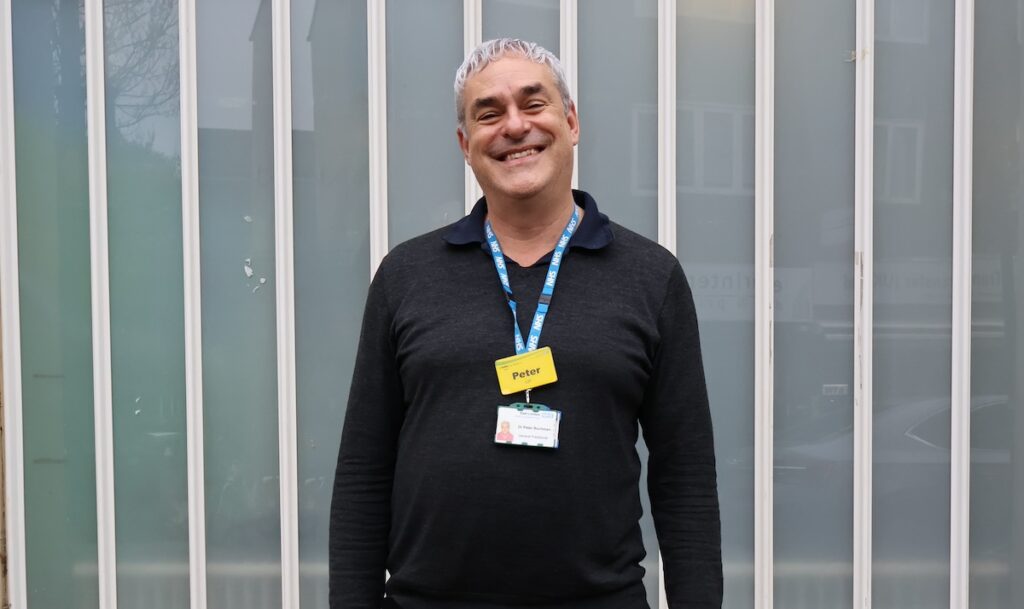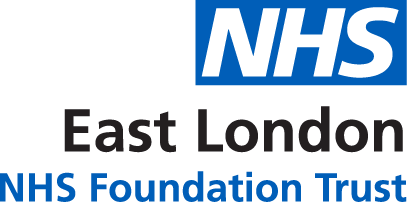Collaboration is Key in Providing Care

The Trust’s Pathway Homeless Team, based at the Royal London Hospital, were winners of the Working in Collaboration Award. Dr Peter Buchman, Clinical Lead of the Pathway Homeless Team at the Royal London Hospital describes their work.
Who do you help?
Our team works with people experiencing, or at risk of homelessness who are admitted to the Royal London Hospital. We use a broad definition of homelessness including rough sleeping, sofa surfing, squatting as well as hostel dwellers and people in temporary accommodation such as Bed & Breakfast
In general, our patients fall into Inclusion Health groups. Inclusion health is an umbrella term used to describe people who are socially excluded, who typically experience multiple overlapping risk factors for poor health, such as poverty, violence, and complex trauma. This includes people who experience homelessness, drug and alcohol dependence, vulnerable migrants, Gypsy, Roma and Traveller communities, sex workers, people in contact with the justice system and victims of modern slavery.
How do you help clients?
We are a Multi-disciplinary Teams of committed compassionate professionals working with homeless patients in hospital to transform outcomes for our patients through clinical advocacy.
Our purpose is to improve the health of people experiencing homelessness and we aim to stop people returning to the street and increase vulnerable patients’ engagement with community services to support their longer-term needs and stop them needing to come back to hospital.
Our team is made up of a GP, nurses, a social worker, and a senior care navigator with lived experience of homelessness. We aim to maximise the benefits of a hospital admission and ultimately improve health outcomes.
We endeavour to build relationships of trust with patients and meet their immediate practical needs for fresh clothes, shoes, contacting friends and family. We conduct holistic, patient-centred assessments and provide clinically supported housing advocacy and discharge planning.
How do you collaborate with services?
Most of our patients have multiple complex needs so collaboration is key. We hold a weekly multidisciplinary meeting to bring together colleagues from secondary care, local authority (housing, adult social care, and safeguarding), primary care, substance misuse services and voluntary sector. This helps us develop a meaningful care plan to facilitate a safe discharge from hospital with appropriate follow up and support in the community.
We also convene and attend multidisciplinary meetings involving key hospital and community services around particularly complex cases. We ensure patients are registered with a GP they can access on hospital discharge, make appropriate referrals to Safeguarding, Social Care and other key services such as substance misuse.
For immigrants with no recourse to public funds, we refer to specialist immigration legal advice services to establish patients’ legal entitlements to benefits, and housing support and to regularising their immigration status when required.
Our team offers training and education to local colleagues to promote culture change in the hospital and local authority.
What benefits does close partnership working bring?
Partnership working improves the lives and outcomes of the vulnerable people experiencing homelessness with whom we work. It ensures they have access to the same care and support as housed people.
It reduces stigma by educating colleagues about the issues our patients face thereby promoting compassion and kindness. It is more satisfying for both the patient and staff when we work together to develop the often-complex solutions that are required to solve complex problems.
How does it feel for the team to be recognised with a staff award?
It is a real boost to our team to be recognised in this way. We feel honoured being such a small team in a very big trust to win this award. I am grateful that the hard and challenging work of the team has been recognised.
